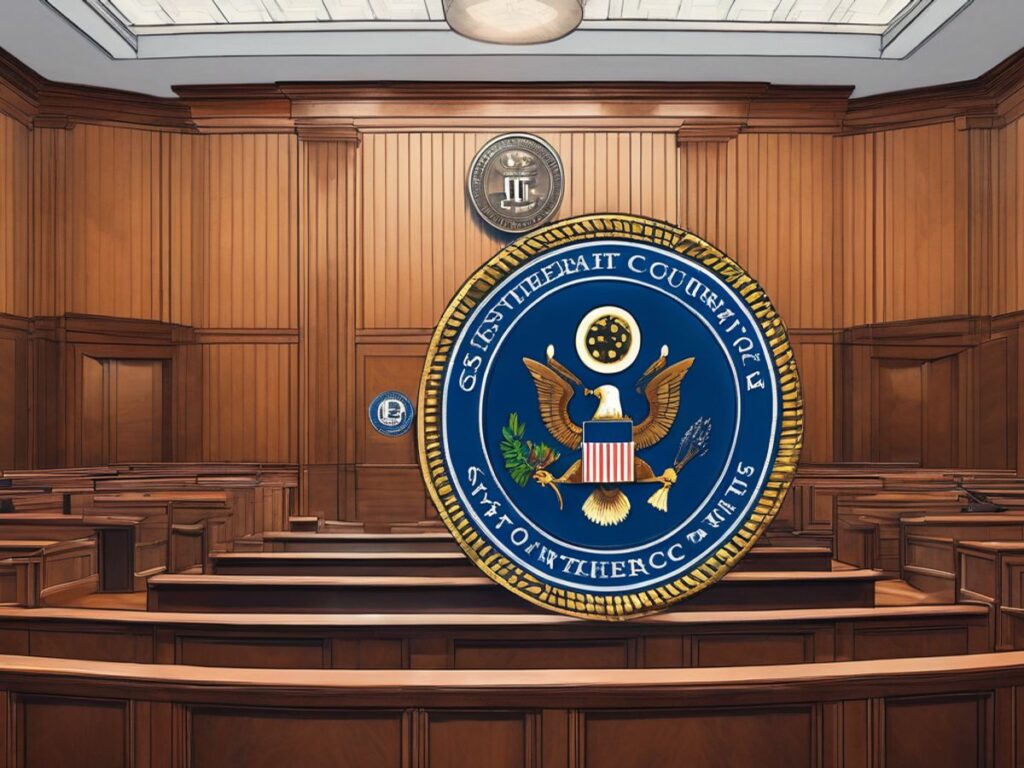Overview of the Event
In a significant move that marks the beginning of a new era for the cryptocurrency industry, the U.S. Securities and Exchange Commission (SEC) has filed lawsuits against three of the world’s largest cryptocurrency exchanges: Binance, Coinbase, and Kraken. The SEC’s primary concern revolves around the classification of cryptocurrencies as securities, which has far-reaching implications for the industry.
SEC vs Binance: A Closer Look
The SEC’s lawsuit against Binance is particularly noteworthy due to the severity of the allegations. The SEC has accused Binance of commingling customer funds for its own interests, a charge reminiscent of those made against the now-defunct FTX exchange. As of late November 2023, the lawsuit remains unresolved.
- Key Allegations: The SEC is investigating whether Binance and its founder, Changpeng Zhao (CZ), had a "backdoor" to control assets on the Binance.US platform. The regulator is also probing whether Binance used U.S. customer funds improperly.
- Company Response: Binance has filed a motion to dismiss the lawsuit. CZ has stepped down as CEO, and Richard Teng has taken over the role.
- Financial Impact: Binance agreed to pay a $4.3 billion fine to settle charges from the U.S. Department of Justice (DoJ), Commodity Futures Trading Commission (CFTC), and Financial Crimes Enforcement Network (FinCEN). This settlement also mandates Binance’s complete exit from the U.S. market.
SEC vs Kraken: Similar Allegations
On November 20, 2023, the SEC filed a complaint against Kraken, the world’s third-largest crypto exchange by trade volume. The charges are similar to those against Binance and Coinbase, focusing on Kraken’s operation as an unregistered securities exchange, broker, dealer, and clearing agency.
- Key Allegations: The SEC alleges that Kraken commingled customer funds for operating expenses, posing a significant risk of loss to its customers.
- Company Response: Kraken has denied the charges and intends to defend itself in court. This is not the first time Kraken has faced SEC action; in February 2023, it agreed to cease its crypto staking services and pay $30 million in fines.
SEC vs Coinbase: The "Compliant" Exchange Under Fire
A day after filing the lawsuit against Binance, the SEC charged Coinbase with operating as an unregistered securities exchange, broker, and clearing agency. The SEC also took issue with Coinbase’s staking-as-a-service program and its marketing campaigns that positioned the exchange as compliant with regulations.
- Key Allegations: The SEC’s charges did not include Bitcoin (BTC) and Ethereum (ETH) as securities but did name other cryptocurrencies like BNB, ADA, SOL, MATIC, and ATOM.
- Market Impact: Following the lawsuit, Coinbase’s stock initially dropped by 12% but has since recovered, posting year-to-date gains of over 250% as of late November 2023.
Market and Industry Reactions
The lawsuits have had a significant impact on the market and the broader crypto industry. Data firm Nansen reported that users withdrew over $3 billion from Binance within 24 hours of the SEC lawsuit. A similar withdrawal frenzy occurred in November 2023, following Binance’s $4.3 billion fine.
The Future of Crypto Regulations
The crypto industry is reluctantly coming to terms with the inevitability of regulations. There is a clear preference within the industry for cryptocurrencies to be regulated by the CFTC rather than the SEC. Crypto insiders are lobbying for cryptocurrencies to be classified as commodities, which would allow for less stringent regulatory requirements.
- Expert Opinions: Pantera Capital experts have suggested that U.S. crypto companies may move offshore as regulators become more aggressive. They also noted that U.S. centralized exchanges might only list Bitcoin and Ethereum in the future.
- Regulatory Timeline: CFTC Chair Rostin Behnam has indicated that it could take one to two years to implement comprehensive cryptocurrency regulations.
Understanding the SEC’s Role
The SEC aims to regulate cryptocurrencies in the same manner as the stock market, ensuring that companies provide truthful information and inform investors about risks. Established in 1934, the SEC was created to restore public confidence in the stock market following the 1929 crash.
Conclusion: The Inevitable Path to Regulation
Cryptocurrency regulation appears inevitable, but there is hope that the U.S. will offer a fair regulatory environment. With better clarity on regulations, crypto exchanges are expected to emerge stronger, safer, and more acceptable than ever before.
